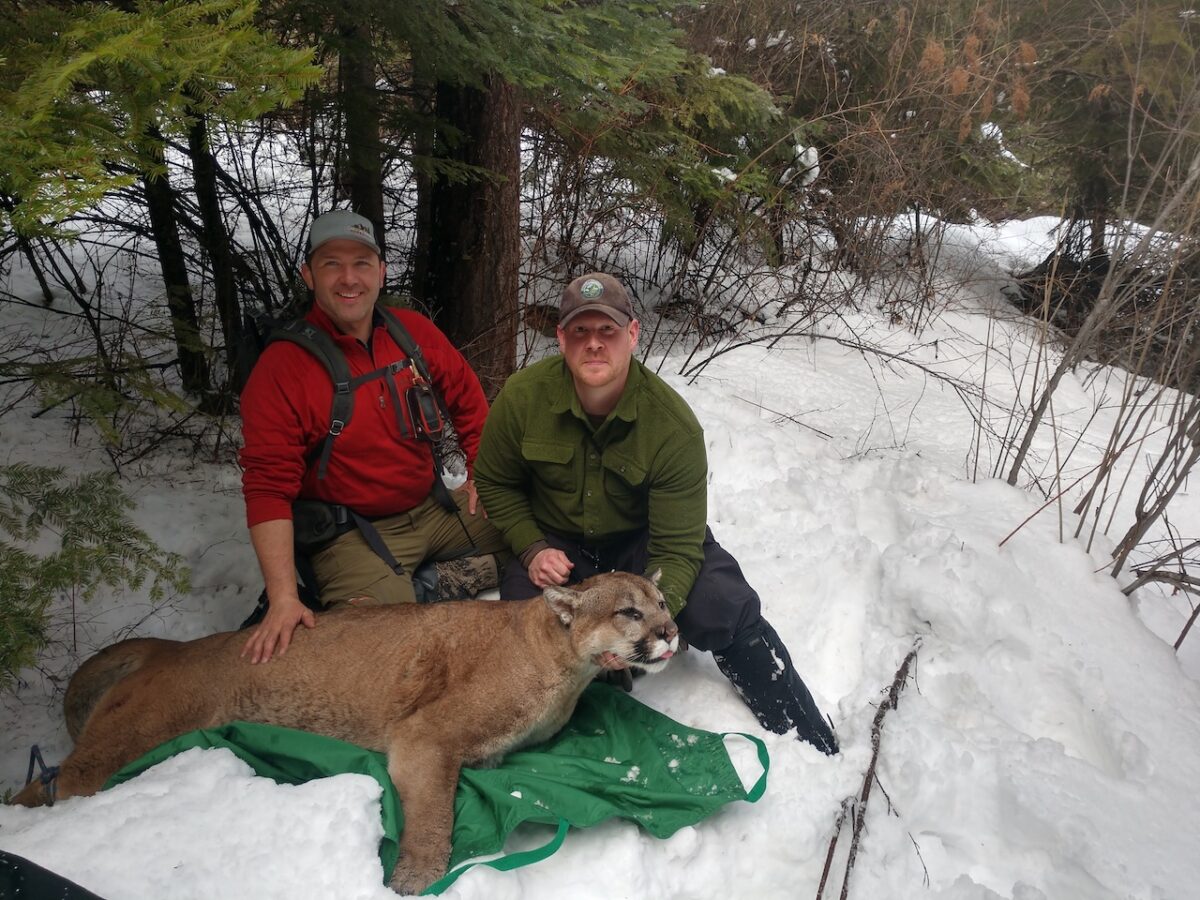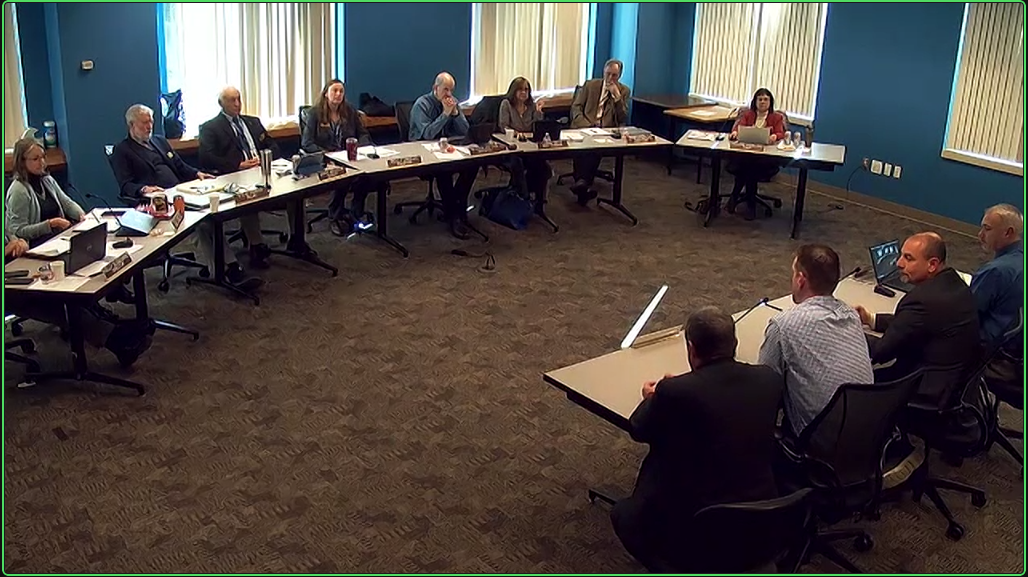
Washington Game Commission Kicks Cougar Rulemaking Can Again
Washington’s Fish and Wildlife Commission today again did not reach a decision on moving forward on cougar rulemaking that could be implemented as soon as this hunting season, kicking the can down the road – but only a few short weeks.
Driven by a petition from predator advocates, higher mortalities seen in Northeast Washington and, in part, a sense of doom, there was no clear consensus to make a motion and vote on a slate of recommendations that came out of the Wildlife Committee yesterday and could rollback hunting regulations back to 2019 and a previous commission decision – and then some.
It was essentially the same result as seen in mid-February, when another update on cougar science was called for to keep things in a holding pattern.

At the end of today’s two-hour discussion, Chair Barbara Baker summarized that the commission needed to regroup and have WDFW policy and science staff go over those committee recommendations and provide their thoughts at the citizen panel’s April 18-20 meeting, if not before. She urged members to hone down what they are asking for.
The recommendations include including cougar conflict removals towards the hunting guideline for management units and shutting hunting down when the total mortality hit benchmarks; lowering the bottom of the allowable mortality guideline from 12 percent to 10 and consider using it to close seasons “as conditions warrant”; include all cougars except kittens in the mortality guideline, the top end of which is 16 percent; run a single, September 1-March 31 season instead of a general fall and guideline-pegged winter season; and review cougar hunting rules every three years as done with other big game species.
Commissioners’ haste to get this in place for 2024 is being driven in part by the mechanics of how rulemaking works at the state level. WDFW would need to receive direction from the commission and then file what’s known as a CR 102 to call for public comment, followed by a public hearing with the commission which would then make a decision. While that potentially presented a “one-and-done” situation – holding the commission hearing and decision during the same meeting – it was suggested this afternoon that there might actually be a little more wiggle room in the timeline because of the September 1 start of cougar season and a midsummer commission meeting.
If they can’t hit those marks, they have to wait for – the horror – 2025 to potentially get the rules in place. That would also align with updating of the Game Management Plan, however.
Everybody seems to hear what they want from WDFW’s scientists and their presentation, as seen from commissioners and today’s public commenters, but Dr. Brian Kertson – called to the front table by Director Kelly Susewind – was crystal clear about the need to act immediately to save the cougar population in the state’s northeast corner, where he’s done extensive research.
“Can you wait a year to make these changes? Yes. The population there isn’t going to go extinct,” Kertson told the commission.
He said that while the survival of adult females was a little low at 77 percent, it was not emblematic of an imminent decline. He said reproduction is relatively high at 2.6 kittens a litter and that adult male survival is relatively good in the mid-60 percent range and that he’s seen a number of larger ones in his research. He said that that was exactly what WDFW cougar management was “designed to maintain.”
It all didn’t set well with Commissioner Melanie Rowland who pushed Kertson on the impact of droughts and wildfires in that country.
“When times are bad for ungulates, times are good for predators,” Kertson corrected.
A climate change missionary, Rowland prophesied big doom this summer and couldn’t understand why that didn’t warrant extra caution from others.

Commissioner Steven Parker, a retired tribal fisheries biologist, said he was a lot happier knowing a whole lot less about cougars, but gamely tried to get some of his questions answered. He acknowledged that in some folks’ minds there is a real urgency to begin rulemaking, but he wasn’t sure how to gauge whether the situation was that urgent or not.
Dancing around the values-laden word, Wildlife Program Manager Eric Gardner acknowledged it was “very clear” some cougar management units have been exceeding their hunting guidelines, which he says some folks are concerned may be affecting the population locally or more broadly, but as a whole the state’s cat numbers are stable, healthy and well balanced between age groups. One of the questions agency staffers are working on through this process is that of scale.
Besides the northeast, there are concerns about the amount of lethal removals in Klickitat County. Managers try to keep hunting mortalities below 16 percent of estimated local populations. Folding in conflict and safety removals into the guideline would reduce hunting opportunities. The science around whether hunting leads to conflicts is not settled.
Game Division manager Anis Aoude reminded commissioners of another social component in critter management – being allowed onto private lands to research wildlife. He felt moving too fast on cougar rules in a region that had asked for more leeway in 2019 would “hinder” WDFW’s ability to carry out science. This country is critical to the Washington Predator-Prey Project.
Aoude also said that rushing things into effect this year didn’t allow for “due process.
“If we want a robust public process, we wait a year,” he urged.
But it’s not really up to biologists like Kertson and managers like Aoude and Gardner; it’s up to the commission on the approach to take.
In other commission news today, members voted to deny a petition to split deer tags into Westside or Eastside only, and while they also voted down another to ban bait for steelhead and start what’s left of the summer-run season in Puget Sound later, they directed WDFW to consider the ideas as the new native trout harvest management policy is drafted.
A third petition, to scrub the 25-fish perch limit at Fish Lake near Lake Wenatchee, was approved and rulemaking will be worked on after North of Falcon because of distant linkage to the salmon-season-setting process.
And they approved acquiring 90 more acres for the Violet Prairie Unit of the Scatter Creek Wildlife Area west of Tenino.

